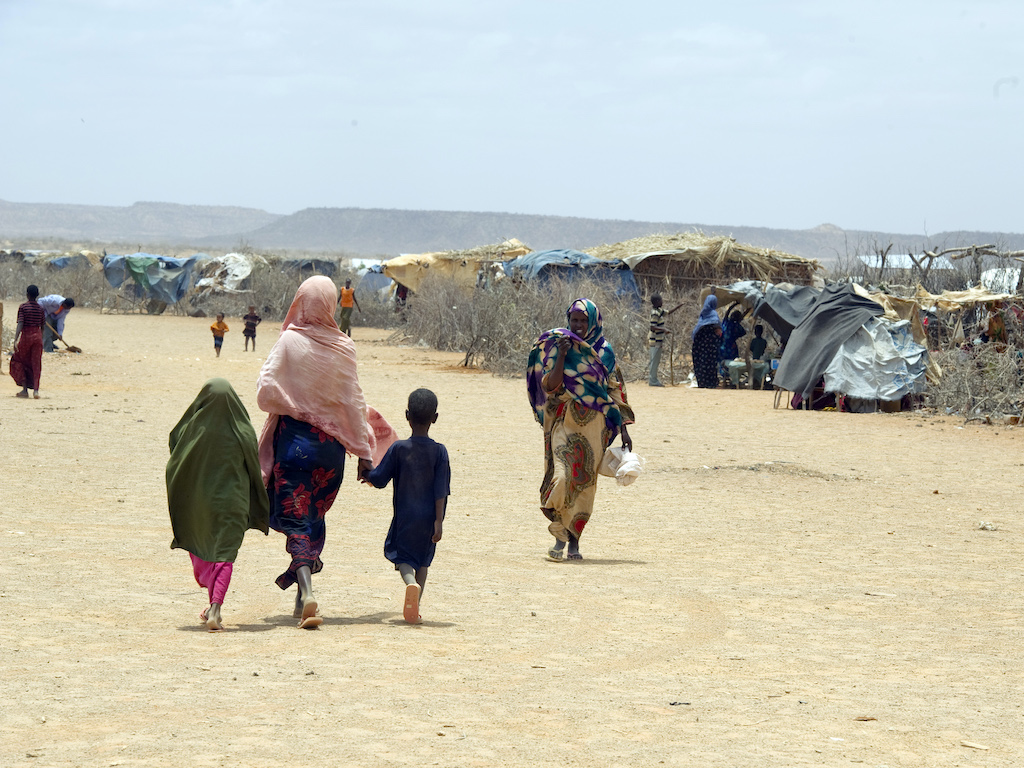3 Mins Read
A new report is warning that climate change could displace more than 1 billion people in the next few decades. The analysis says that countries that are unable to withstand environmental threats will be among the world’s least peaceful regions, driving mass migration that has never been seen before.
Researchers from the Institute for Economics and Peace (IEP), a think tank investigating global terrorism and peace, found that 1.2 billion people across 31 countries could face displacement within the next 30 years amid population growth and the climate crisis. This could then drive mass migration with “huge impacts” for the entire globe.
The report drew on data from the United Nations to assess the exposure to ecological threats across 157 countries, and then examines these countries’ ability to withstand such threats. Out of the entire group, 141 countries face at least one environmental threat by 2050, with the most threats to be seen in sub-Saharan Africa, South Asia, the Middle East and North Africa.
This will have huge social and political impacts, not just in the developing world, but also in the developed, as mass displacement will lead to larger refugee flows to the most developed countries.
Steve Killelea, IEP Founder
Among some of the ecological threats that the report considers are water scarcity, food shortages and exposure to natural disasters that are intensifying over time as global temperatures continue to rise.
Many of the countries facing the most number of threats are not only already among the world’s 40 least peaceful countries, but also are predicted to see huge population growth that will further exacerbate mass displacement of people. Researchers highlighted Nigeria, Angola, Burkina Faso and Uganda as countries in this group.
“This will have huge social and political impacts, not just in the developing world, but also in the developed, as mass displacement will lead to larger refugee flows to the most developed countries,” said Steve Killelea, founder of the IEP, in conversation with the Guardian.
“Ecological threats pose serious challenges to global peace. Over the next 30 years, lack of access to food and water will only increase without urgent global cooperation. In the absence of action, civil unrest, riots and conflict will most likely increase.”
In Asia, India and China are predicted to be most at risk of water scarcity. This had been previously emphasised in an earlier report by the United Nations, which pointed out that water stress and the chronic underfunding of water infrastructure is currently putting countries, especially those in Asia and Africa, at a worse health and environmental threat than the ongoing coronavirus pandemic.
Even small ecological threats and natural disasters could result in mass population displacement.
IEP Report
India was also listed among the 17 countries already suffering from extreme levels of high water stress due to population growth, climate change, wastewater and pollution in a report last year published by the World Resources Institute (WRI).
IEP analysts further found that Pakistan is the country with the most people facing mass migration overall, closely trailed by Ethiopia and Iran. They said that lack of resilience in these countries will deepen issues of food insecurity and resource competition, which will in turn drive civil unrest and more displacement of people.
“Even small ecological threats and natural disasters could result in mass population displacement,” the authors of the report wrote.
Finally, the while developed and richer nations in Europe and North America face fewer ecological threats than other countries around the world, they are “not immune” from the wider domino-like impacts, and due to the rising frequency and severity of natural disasters as a result of climate change, even stable states could be imperilled by climate-related impacts by 2050.
Lead image courtesy of UN Photo / Eskinder Debebe.




